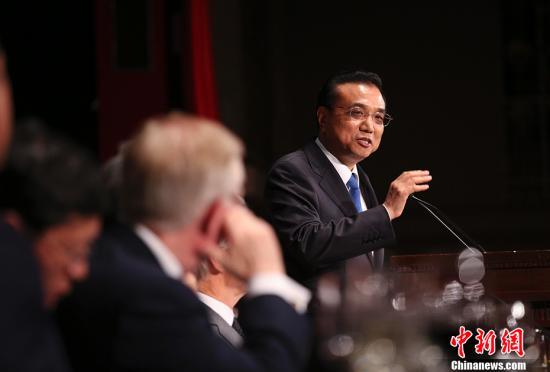At UN meeting, Li Keqiang pledges market access, not "stagnation and backwardness"
Chinese Premier Li Keqiang said on Wednesday that China will promote development through deepening reform and opening its doors more widely to the outside world. His statement came during his speech at the General Debate of the 71st Session of the UN General Assembly, held in New York.
"China's experience in the past decades has proven that a closed-door policy only leads to stagnation and backwardness [...] China will open its doors even wider to the outside world," he told the UN.
But not all the talk was sunny. On Tuesday, Li spoke at a business dinner in New York, where he said that trade frictions between the US and China are inevitable as commercial ties between the two countries deepen. Yet Li emphasized that such clashes won't be the mainstream. He responded to attacks on the lack of open markets in China by stating that “China is open to foreign investment, although some economic sectors are not mature yet.”
As an example of China’s willingness to open up its markets, Li announced that China will soon resume imports of US beef, putting an end to a 13-year ban. Moreover, Li said China has decided to designate a Chinese bank as a clearinghouse in New York for yuan-denominated transactions, later clarified to be the New York branch of the Bank of China. Li added that non-Chinese banks in New York that meet the requirements are also welcome to become clearinghouses for yuan-denominated transactions.
Earlier that same Tuesday, Li attended a meeting with representatives from US businesses, think tanks, media and academia, where he offered other reassurances that China won't close itself off from the world. He added that the current bilateral investment treaty (BIT) negotiations are a positive sign for the business community in both countries, saying “As long as both sides hold a pragmatic and flexible attitude, I’m sure we will be able to reach a high standard and mutually beneficial BITs.”

 Old Version
Old Version